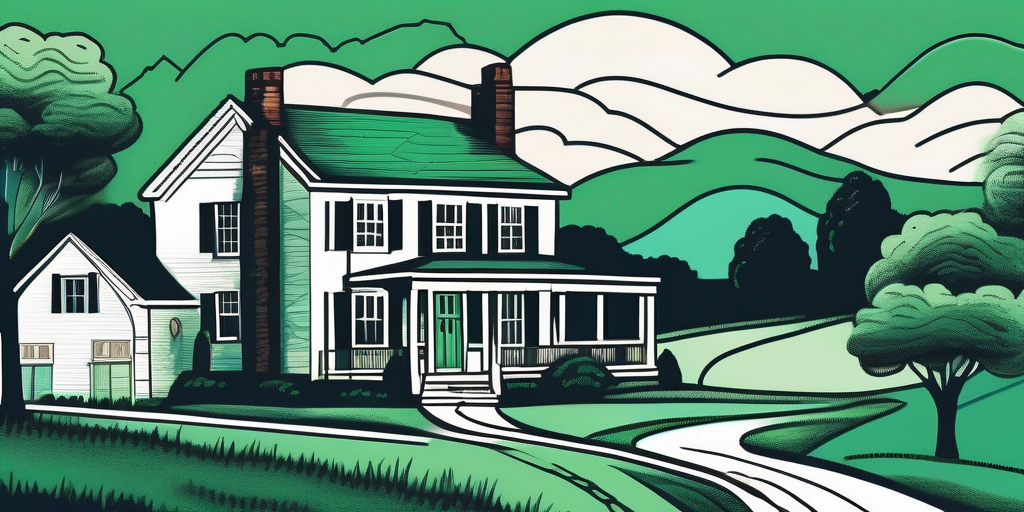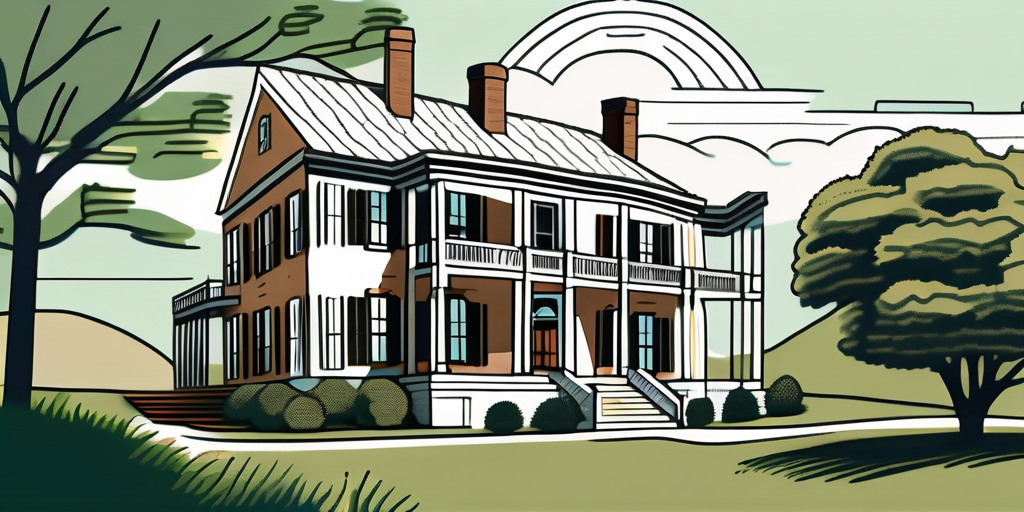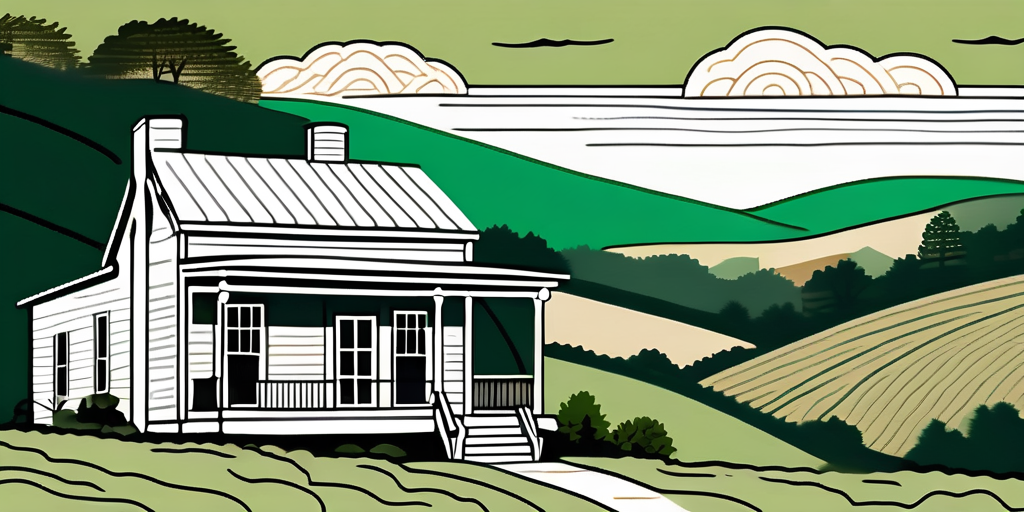
Tennessee is a treasure trove of history, brimming with captivating stories and iconic landmarks. Whether you're a history buff or someone who simply enjoys the charm and character of older homes, living near historic sites can be a dream come true. This guide explores why these locations are so appealing, along with the types of properties available and the key factors to consider if you're thinking about making a move. Get ready to uncover the rich tapestry of Tennessee's past and present!
There's something uniquely enchanting about historic sites. They tell stories of the past and give us a glimpse into the lives of those who came before us. When it comes to Tennessee, the appeal of these sites is particularly strong, thanks to the state’s deep-rooted history.

Tennessee played a pivotal role in American history, honing its identity from the days of Native American settlements to its prominent position in the Civil War. The state was home to famous figures like Andrew Jackson and Davy Crockett, and it saw significant events unfold in towns like Nashville and Chattanooga. Historic sites abound, including battlefields, homes, and museums that are rich in untold stories.
Each historic site in Tennessee offers a unique narrative that attracts locals and tourists alike, whether it’s the beautiful antebellum architecture of former plantation homes or the preserved artifacts of the civil rights movement. Living near such sites allows residents to absorb these rich tales daily, fostering a sense of identity and community tradition. The stories embedded in these locations often spark curiosity and encourage educational pursuits, making them not just places to visit, but also to learn and grow.
Aside from the rich experiences offered, there’s also a tangible value in owning property near historic sites. Homes in these areas often appreciate faster than other properties due to their location and the ongoing interest in the history they represent. Additionally, residing near historically significant locations can enhance your lifestyle—excellent restaurants, cultural events, and community gatherings are often abundant around these attractions.
Moreover, homes near historic sites often have architectural elements that you don’t find in newer developments, adding a unique charm to your living experience. From intricate moldings to spacious wrap-around porches, these homes exude character and offer residents a flavor of the past. The neighborhoods surrounding these historic sites often foster a strong sense of community, where neighbors gather for local festivals, farmers' markets, and historical reenactments, creating a vibrant social fabric that is both welcoming and engaging.
Additionally, the preservation efforts surrounding these historic sites often lead to increased investment in the area, resulting in improved infrastructure and amenities. This not only enhances the quality of life for residents but also attracts more visitors, creating a dynamic atmosphere that celebrates both history and modernity. The intertwining of past and present in these communities offers a unique opportunity for residents to engage with history in a meaningful way, ensuring that the stories of Tennessee's rich heritage continue to resonate for generations to come.
To truly appreciate the historical significance of Tennessee, one must explore its various regions. Each area has its own narrative, contributing to the overall story of the state.

East Tennessee is known for its breathtaking mountain views and rich Appalachian culture. Towns like Jonesborough, recognized as the oldest town in Tennessee, offer picturesque streets lined with well-preserved historic homes dating back to the late 18th century.
Other gems include Gatlinburg and Pigeon Forge, where history meets natural beauty. These regions not only provide historical context but also attract visitors with art galleries, craft shops, and a mix of outdoor activities, enhancing the appeal of living in the area. The Great Smoky Mountains National Park, straddling the border between North Carolina and Tennessee, is a treasure trove of biodiversity and history, featuring remnants of early settler cabins and ancient Native American trails. The park serves as a reminder of the region's rich cultural tapestry, where nature and history intertwine seamlessly.
Middle Tennessee boasts Nashville, the state capital and the heart of country music. The city is synonymous with legendary musicians and historical landmarks like the Parthenon and the Hermitage, home to Andrew Jackson.
Taking a step outside of Nashville, towns like Franklin are worth mentioning as well. With their beautifully restored downtown areas and numerous Civil War sites, they provide a delightful mix of history and community spirit. Residents here enjoy a vibrant culture rooted in their heritage while being just a short drive from the urban pace of Nashville. The Battle of Franklin, fought in 1864, left an indelible mark on the town, and today, visitors can explore the Carter House and Carnton Plantation, which serve as poignant reminders of the sacrifices made during the war. This rich historical backdrop fosters a deep sense of pride among locals, who celebrate their past through annual reenactments and festivals.
West Tennessee is perhaps best known for Memphis, famous for its blues music and barbecue. The city is home to iconic sites such as Graceland, the former residence of Elvis Presley, and Beale Street, a historic district showcasing a lively music scene.
Beyond Memphis, small towns like Collierville offer charm, with historic districts filled with antebellum homes and a strong sense of community. Living in this region means immersing oneself in a vibrant atmosphere heavily influenced by both historical and contemporary elements. The National Civil Rights Museum, located at the former Lorraine Motel, where Dr. Martin Luther King Jr. was assassinated, provides a profound insight into the civil rights movement and its impact on American society. This museum not only serves as a historical landmark but also as a place of reflection and education, drawing visitors from around the globe who seek to understand the struggles and triumphs of the past. The blend of music, history, and community spirit in West Tennessee creates a unique cultural experience that resonates with both residents and visitors alike.
When it comes to finding the perfect home near a historic site, you have diverse options to choose from. Each type of property comes with its own set of advantages and charm.
Purchasing a historic home can be a rewarding experience. These properties often come with unique architectural features, spacious layouts, and the historical significance that few modern homes can offer. While historic homes can require some extra care and maintenance, the pride of ownership often outweighs the challenges.
For those who appreciate craftsmanship, many historic homes feature period-appropriate details, such as original hardwood floors, vintage fixtures, and tailored moldings. Living in such a space allows you to step back in time while still enjoying modern comforts. Additionally, owning a historic home can provide a sense of connection to the past, as you become part of the narrative of the community and its heritage. Many historic neighborhoods also host annual events, such as house tours and festivals, which celebrate their rich history and foster a strong sense of community among residents.
If you prefer the conveniences of modern living while still being close to historic sites, you are in luck. Many developers now build contemporary homes that blend seamlessly with their historic surroundings. These homes often feature open floor plans, energy-efficient appliances, and updated technology, catering to today's lifestyle without sacrificing location.
By choosing a modern home, residents can enjoy both immediate access to history and the perks of newer construction—making it a practical option for families looking for that blend of old and new. Moreover, modern homes often come with amenities such as smart home technology, spacious garages, and landscaped yards, appealing to those who prioritize comfort and convenience. Living near historic sites also allows homeowners to partake in local culture, with easy access to museums, galleries, and historical landmarks that enrich the living experience and provide endless opportunities for exploration and learning.
Before diving into a decision, a few factors are essential to keep in mind. Buying a home near a historic site can come with its own unique considerations that differ from other real estate transactions.
One of the first things to investigate when moving near historic sites is local zoning and preservation laws. Many historic districts have specific regulations regarding property modifications, renovations, and even landscaping. These laws are in place to maintain the area’s historical integrity and aesthetic appeal.
Understanding these regulations can help set realistic expectations as you consider potential renovations or upgrades to your new home. Ensure that any changes you plan align with local guidelines to preserve the historical charm that attracted you to the area in the first place. Additionally, some historic districts may offer tax incentives or grants for homeowners who commit to maintaining the historical character of their properties, which can be a financial boon for those looking to invest in renovations that honor the past.
Living near popular historic sites can mean an influx of tourists, especially during peak seasons. While this can lead to a vibrant community atmosphere, it can also come with challenges such as increased traffic and parking shortages.
Before making a purchase, it's wise to get a feel for the area's tourist activity—how it impacts daily life, local amenities, and your overall enjoyment of the neighborhood. Identifying a balance between the benefits and drawbacks of residing in a tourism-heavy area will help you make an informed decision. Furthermore, consider the potential for noise and crowds during local festivals or events, which, while often enjoyable, may disrupt your peaceful living environment. Engaging with current residents can provide valuable insights into how they navigate these challenges and what strategies they employ to maintain their quality of life amidst the hustle and bustle of tourism.
If you’re ready to buy, understanding the process can set you up for success. With the right approach, purchasing a home in this unique setting can be an exciting adventure.

The first step is to find a real estate agent who has experience with historic properties. An agent who understands the nuances of buying near historic sites can provide invaluable insights on pricing, zoning laws, and the historical context of various properties.
Look for someone who specializes in properties within historic districts and has a passion for preserving the area’s heritage. Their expertise can make the buying process smoother and more enjoyable, as they can offer tailored advice to help narrow down your choices. Additionally, a good agent will have connections with local contractors and preservation specialists, which can be incredibly beneficial if you plan to make renovations or restorations. They can guide you through the process of obtaining necessary permits and adhering to local preservation guidelines, ensuring that any updates you make respect the historical integrity of the property.
Finally, as you consider homes for purchase, take time to evaluate each property’s historic value. This goes beyond aesthetic appeal; it includes checking historical documentation, assessing potential renovation needs, and understanding the significance of the property within the broader context of the area’s history.
Consult with preservationists or local historians if necessary—this can ensure that you make an informed decision about the home you plan to purchase, allowing you to appreciate its legacy fully. Moreover, consider the architectural style and historical features of the home; elements such as original moldings, fireplaces, and flooring can add to the property’s charm and value. Understanding the stories behind these features can deepen your connection to the home and the community, making your living experience even more enriching.
Living near historic sites in Tennessee presents a wonderful opportunity to be part of the state's ongoing story. With the right knowledge and careful consideration, you can uncover a home that resonates with both the past and present, blending a rich heritage with everyday life. The vibrant culture surrounding historic sites often includes local events, festivals, and educational programs that celebrate the area’s history, offering you a chance to engage with your neighbors and immerse yourself in the community. This connection to the past can provide a unique sense of belonging, making your new home not just a place to live, but a gateway to a deeper appreciation of the rich tapestry of history that defines Tennessee.